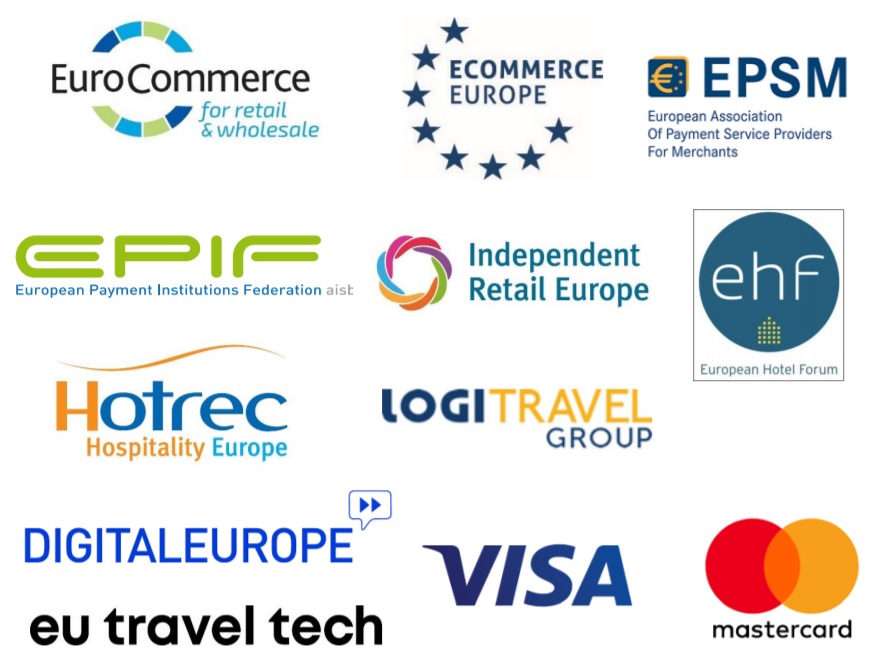
Payments and ecommerce associations throughout Europe have signed a letter requiring the European Commission and the EBA to ponder over Strong Customer Authentication (SCA) delay due to COVID-19.
The signatories call on the European authorities to consider appropriate additional measures and coordination to assist in the smooth transition to SCA in all EU Member States equally. In the light of COVID-19, this should also include the possibility of an at least additional six months for the market to be fully SCA ready.
Please find the full document below
Dear Mr José Manuel Campa,
The signatories have invested considerable resources to meet the deadline for completing the implementation of the Strong Customer Authentication (SCA) requirements under PSD2. We would like to acknowledge the pragmatic and flexible approach taken by the EBA and the respective national competent authorities on the timetable for implementation. Our members are working hard to be ready to comply with their legal requirements pertaining to SCA by December 2020.
The European Payment Institutions Federation (EPIF) this month hosted a workshop for a cross-section of stakeholders in card payment markets where the impact of SCA implementation as a result of COVID-19 was discussed. Among the attendees were bank and non-bank payment providers, the merchant community, European and international card schemes. Overall, EMV 3DS implementation is progressing across Europe. However, it is now clear that the COVID-19 crisis has significantly reduced the capacity available to progress SCA development and implementation. This is particularly true in the travel and hospitality sectors, and others which have either closed down entirely or been hard hit by the lockdown.
The exceptional circumstances of this disease is putting an additional strain on the limited resources for all parties involved in the payment chain. During the pandemic, companies have had to focus their efforts on business continuity, prioritising business critical activities targeted at maintaining stability and supporting consumers though the crisis. Many have had to change their operations to service new and pressing customer needs which, in many cases, includes relaxing their normal business terms. This all requires redeployment of resource to manage this activity and the governance and controls surrounding it. For many merchants, this also has to be delivered by a reduced workforce through layoffs arising from falling revenues and necessary social distancing measures.
Consumers are relying on ecommerce more than ever, and therefore maintaining product availability and ensuring a smooth and friction free customer journey, with these increased volumes will be the priority of technical teams. Given these pressures, merchants cannot accommodate any additional risk of payment disruption. Making technology changes when in crisis mode, with technical teams working remotely, adds significant risk to any deployment which could lead to further disruption, confusion and a worse customer experience. This is an unnecessary additional challenge when consumer confidence is at an all-time low, and non-food online sales are already depressed, and may lead to operational overload for already strained call centres.
The payments ecosystem involves a high number of dependencies and parties must work together to implement SCA. The constraints the current crisis places on the roll out of SCA technology severely limits the time available for participants to test together, which is essential to a safe and controlled implementation. Critically, the time lost during lockdown will not be able to be recovered later in the year due to system freezes pre-peak trading. Avoiding disruption is even more critical this year as this will coincide with the early stages of economic recovery.
The signatories therefore call on the European Commission and the EBA to consider appropriate additional measures and coordination to assist in the smooth transition to SCA in all EU Member States equally. In the light of COVID-19, this should also include the possibility of an at least additional six months for the market to be fully SCA ready.
Beyond the cards market, EPIF’s members have also highlighted that effective SCA implementation is a key building block to ensuring the smooth functioning of payment initiation service providers and account information service providers, as regulated under PSD2. Access to the underlying customer accounts should be able to rely on one single SCA.
We remain committed to the smooth and effective implementation of SCA along the card payment chain and look forward to working with the European Commission. EBA and the National Competent Authorities to make PSD2 implementation a success.
Sincerely,
The Co-signatories.
This letter has been co-signed by the following organisations:

Banking 4.0 – „how was the experience for you”
„To be honest I think that Sinaia, your conference, is much better then Davos.”
Many more interesting quotes in the video below: